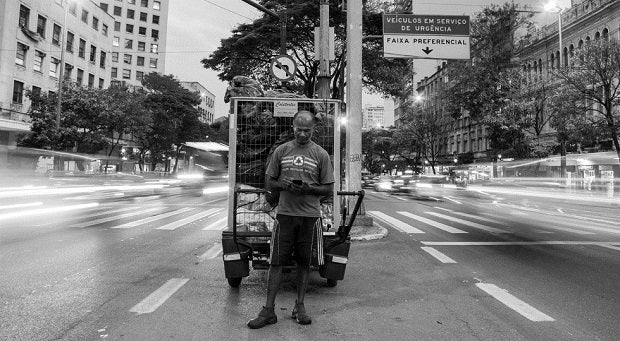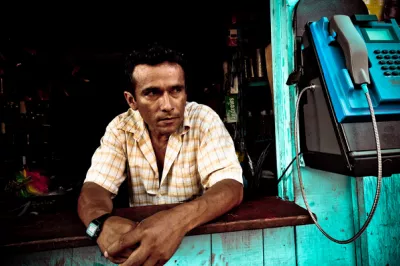Will Brazil Go Digital?
Although Brazil has about 2,000 financial institutions, its financial system is highly concentrated. In December 2014, 78 percent of deposits were in five financial conglomerates, each with more than 15 million clients and together controlling 87 percent of the country’s branches, 93 percent of its agent networks for account opening, and 81 percent of payment transactions.
This degree of concentration leaves little room for other competitors to enter the market, especially small institutions. But a concentrated market does not mean an antiquated one. Internet banking and digital payments have a long history in Brazil. In fact, in 2014 Brazil was ranked the third largest non-cash transaction market, after the United States and Eurozone.
In March 2016, the Brazilian government took another step toward remote banking. The National Monetary Council approved the Resolution 4,480, which allows financial institutions to open accounts with digitized documents. This resolution removes the need for physical IDs or proofs of address and permits alternatives to verifying original documents when it comes to checking the veracity of people’s information.
Medium and small size banks, which had been operating only in niches not adequately serviced by the big five conglomerates, have seen this new regulation as an opportunity to reach new customers. So far, four such banks have launched fully digital accounts, which can be opened on internet or mobile apps without going to a branch or agent.
| Institution | Launch | Consumer Profile | Target |
|---|---|---|---|
| Original | March 2016 | BRL 4,000 ($1,180) monthly income |
100,000 clients in 12 months 2 million clients in five years |
| Intermedium | April 2016 | Not published | Not published |
| Neon | July 2016 | Not published | 100,000 clients in 12 months |
| BTG Pactual | September 2016 | BRL 50,000 ($14,670) available to invest | BRL 65 billion portfolio ($19 billion) in three to five years |
While the BTG Pactual platform focuses on offering investments (term deposits or mutual funds), the other financial institutions offer a full banking potfolio, adding payment transactions via cards and interbank transfers to investment options.
Fees charged vary widely. Original monthly fees start in BRL 24.90 ($8) for a limited number of withdrawals and transfers. Neon offers a limited number of transactions free of charge. On the other hand, Intermedium currently offers free unlimited transactions — deposits, withdrawals, interbank transfers and payments.
All the four banks were fully operational at the time of the regulation change (so no additional licensing was needed) and were integrated into Brazil’s existing interoperable payment infrastructure, from which they leapfrogged to some promising new business models.
For example, Intermedium is now using Boleto, a payment instrument available in Brazil for more than 25 years that allows consumers to pay bills in cash at any bank (settled via clearing house), to collect cash deposits through any bank’s branch or agent (though not instantly settled). The Brazilian interbank real time gross settlement system, established 15 years ago, allows digital account holders at Intermedium and elsewhere to transfer funds instantly to any other bank account. The 34-year-old Banco24Horas, the only interoperable ATM network in the country, makes it possible to withdraw cash from digital accounts at more than 19,000 cash dispensers. Finally, to make daily transactions easier, Intermedium, Neon and Original offer debit cards – Visa or Mastercard – allowing merchant payments.
With zero cost for customers, Intermedium has seen its account number jump from 10,000 in March 2016 to around 80,000 in December 2016. More than 30 percent of its clients are making at least four transactions per month, including withdrawals, deposits, transfers and merchant payments. Other clients do not use their accounts for daily transactions but hold investment accounts. Paid services, such as consumer credit, mortgage and insurance, provided to digital platform customers and others (Intermedium is part of a housing development group) are expected to generate enough revenue to sustain operations.

Interoperability seems to be a crucial aspect for these digital banks. Original, which claims to have invested BRL 600 million ($176 million) to set up its platform, offers open APIs for account statements, investments and payments, allowing independent fintech developers to connect with the Original banking system, without the need for consumers to expose their PINs and other sensitive data.
Preventing fraudulent account opening and ensuring the integrity and security of transactions are big concerns that technology is helping these companies to solve. Intermedium uses different electronic information, including geolocation, to fulfill KYC requirements. When enrolling for an account, Neon customers can record a selfie to authorize future transactions by face recognition instead of using their PINs.
The challenges these digital banks face go beyond security issues. The Intermedium customer service team had to enhance their skills and to start using chatbots to deal with the increasing number of digital consumers: the chat throughput per attendant grew 480 percent last year.
Will these remotely opened digital accounts be meaningful for financial inclusion and to increment financial market competition in the land of banking agents? Any answer is still premature. Considering Brazil’s smartphone base of 168 million devices, digital accounts are poised to boom. However, current operations are still tiny compared to the traditional banking sector and long-term sustainability is yet to be assessed. Nonetheless, cheaper, user-friendly interoperable accounts are a good new value proposition for consumers.




Add new comment